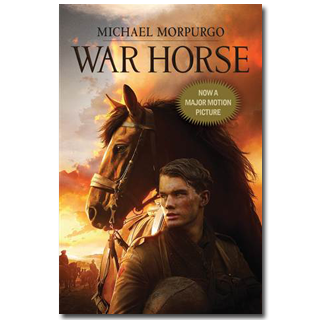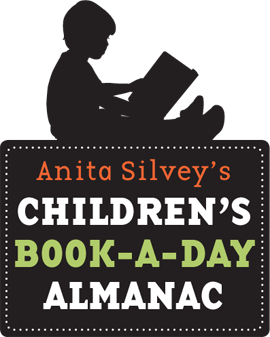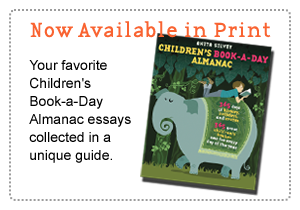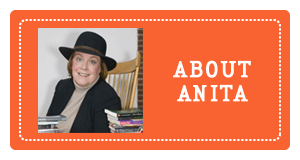
A FEW OTHER EVENTS FOR
FEBRUARY 21:
- Happy birthday Virginia Driving Hawk Sneve (The Trickster and the Troll), Patricia Hermes (Emma Dilemma and the Soccer Nanny), and Ruthanne Lum McCunn (Moon Pearl, Pie-Biter).
- It’s the birth date of poet W.H. Auden (1907–1973).
- In 1878 the first telephone book (remember those?) was issued in New Haven, CT.
- Happy birthday to The New Yorker. The first issue was published on this day in 1925. Cartoons by Roz Chast appear frequently in this notable magazine. Read The Alphabet from A to Y with Bonus Letter Z by Steve Martin and Roz Chast and Too Busy Marco by Roz Chast.
On February 21, 1916, the German High Command launched an offensive in Verdun, France. It was to become the longest battle of World War I, ending on December 15 of that year, claiming a million men.
No matter how many movies I watch or books I read, I still have trouble wrapping my mind around the first World War, the tactics and the loss of life. And it has remained one of our most elusive historical events to explain to children. A few years ago, British writer Michael Morpurgo, who had written a powerful antiwar book, Private Peaceful, again took up the subject of World War I this time for young readers. While listening to stories of the war in his village, he came upon a man who had worked with the horses of World War I. Morpurgo set out to tell that story—and chose to relate the events of the war through the eyes of a horse, Joey.
If you have seen either the recent movie War Horse or the successful stage adaptation of this book, you should still pick up Morpurgo’s masterful novel. By using Joey as the narrator, he brings war into focus for young readers.
Cared for and loved by Albert, the son of a farmer, Joey moves from a half Thoroughbred colt to a good farm horse. But he gets requisitioned in the war, breaking Albert’s heart. Then Joey goes through training with a new master and eventually into battle; when this kind soldier is killed, Joey gets shuffled around from one owner to another. He spends some time in France with a young girl and her grandfather who care for him. As part of the ambulance core, he transports the wounded.
But when his constant companion, another horse Topthorn, dies, Joey runs away, only to be trapped in No Man’s Land. Once again saved, Joey and Albert are reunited on the front. And in a three-handkerchief ending, Albert and his horse head back to their English village, both of them dramatically altered by the war.
Without preaching or proselytizing, Morpurgo shows the high price of war. He develops an attractive cast of characters, although Joey remains his finest creation. A good horse story, a good war story, a loud cry for peace, War Horse belongs in any collection dedicated to the best books for children. I myself did not find it until after I saw the movie. If you are in a similar position, don’t wait to pick it up. You will find yourself falling in love with a very special horse.
Here’s a passage from War Horse:
Through the long hard winters and hazy summers that followed, Albert and I grew up together. A yearling colt and a young boy have more in common than awkward gawkiness.
Whenever he was not at school in the village or at work with his father on the farm, he would lead me out over the fields and down to the flat, thistly marsh by the Torridge River. Here on the only level ground on the farm he began my training, just walking and trotting me up and down, and later on lunging me first one way and then the other. On the way back to the farm, he would allow me to follow him at my own speed, and I learned to come at his whistle, not out of obedience but because I always wanted to be with him. His whistle imitated the stuttering call of an owl—it was a call I never refused and I would never forget.
Originally posted February 21, 2012. Updated for .






Clearly I need to read this book. I’ve avoided the movie because I am all too familiar with suffering in early days. I had access to seven glorious creatures of four footed light, and they helped me get through a kind of war with grown people who should never be allowed near a horse. (When it was over, we were both changed as well.)
In fact, when I need to work harder on Mindfulness and creativity, I can sometimes be found pulled off on the side of the road, watching horses graze.
Always works.
On to the book..
I just finished reading War Horse this weekend. It was fantastic. I am definitely going to read more of his books as soon as I can get my grubby little hands on them. And now I can see the movie too!
He is definitely one of the finest writers working today — with a wide range of subjects and approaches to his craft.
Have read the book, seen the play on Broadway, and seen the movie. Was surprised at how different all 3 are. Really enjoyed the book because, unlike in the play and movie, we are able to see the war through the eyes of Joey, not the humans who must do the storytelling on stage and screen. I really felt a lot of the humor and innocence of the book are lost in the other adaptations. A great story for all ages and a wonderful lesson of friendship and determination.
I just read this one for the same reasons as everyone else – Broadway play, movie, etc. – and I thought it was so gorgeous! His writing is so lyrical and transportive. I really loved War Horse, but I think I loved Private Peaceful more. I had such amazing empathy for those characters. What beautiful books Michael Morpurgo creates!
Yes. I did read this, and I loved it so much, I became a life-long fan of Morpurgo, and started looking at all his work.